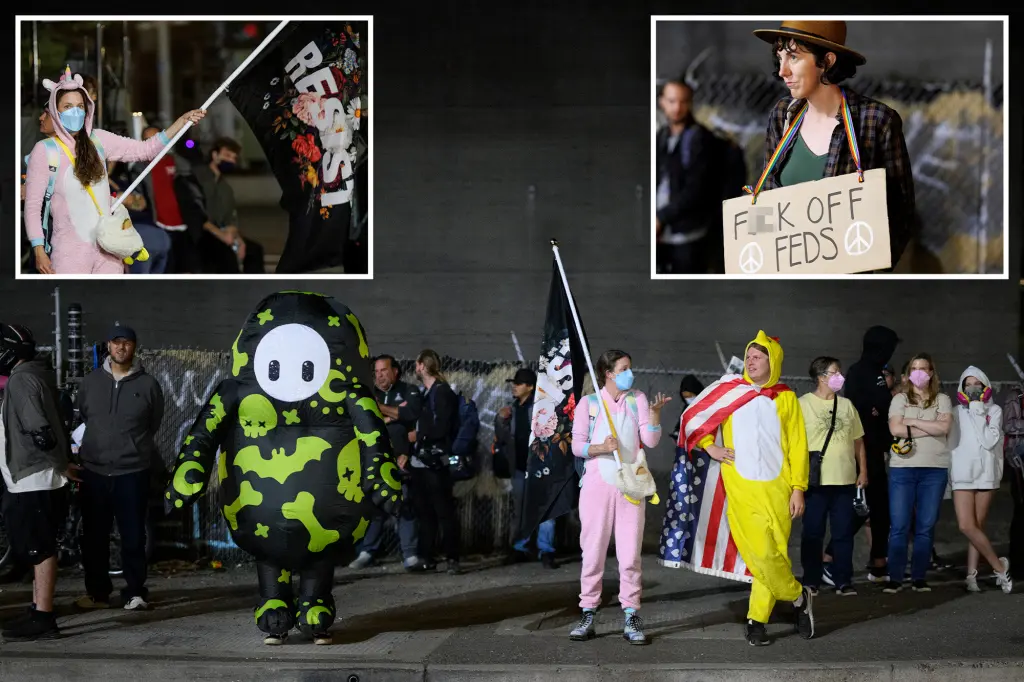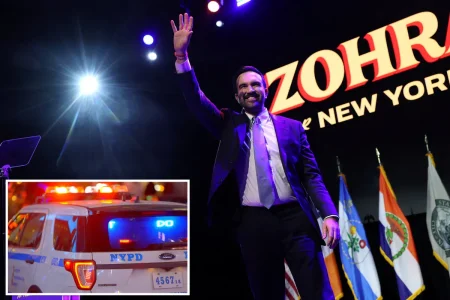Federal Troops in Portland: Tensions Rise as Unannounced Deployment Sparks Controversy
Portland, Oregon, finds itself at the center of a national debate as federal agents arrived over the weekend following President Trump’s unexpected order to deploy military forces to the city. Describing Portland as “war ravaged” and claiming federal buildings were “under siege by ANTIFA, and other domestic terrorists,” Trump authorized “full force” to protect the city—a characterization that local officials and residents strongly contest. The deployment has already generated friction, with video footage from KATU-TV showing an Immigration and Customs Enforcement officer shoving a protester to the ground outside an ICE facility, while another demonstrator was detained during the confrontation. These early incidents highlight the potential for escalating tensions as federal forces establish their presence in a city that, according to its leadership, never requested their assistance.
“We now have a sudden influx of federal agents in our city. We did not ask for them to come. They are here without precedent or purpose,” declared Mayor Keith Wilson during a late-night press conference on Friday. His sentiments were echoed by Oregon Governor Tina Kotek, who stated unequivocally, “There is no insurrection. There is no threat to national security, and there is no need for military troops in our major city.” The governor emphasized that while the Oregon National Guard stood ready if needed, no such necessity existed. Wilson bluntly assessed that “the number of necessary troops is zero in Portland and any other American city,” while Democratic Representative Suzanne Bonamici condemned the deployment as a “gross abuse of power.” The lack of coordination appears to extend to the federal level as well, with Politico reporting that the order caught many Pentagon officials by surprise, and the White House providing no details about troop numbers or specific assignments.
Portland residents have expressed mixed reactions to the federal presence, reflecting the complex reality of a city that has experienced periodic protests, particularly around the ICE facility. David Schmidt, who lives near the ICE building, complained to KATU about nightly noise from protesters “basically being vagrants on the street.” However, other locals fear a repeat of the tensions that boiled over in 2020 when federal forces were previously deployed to the city. “I just remember watching night after night in 2020, and I’m just worried that we’re going to see things blow up like they did in 2020,” said Ocean Hosojasso, a Portland resident. Hosojasso also challenged the president’s characterization of Portland as “hell,” stating, “I know that our city gets this loud and unfair reputation, but you come here, and it’s peaceful.” This disconnect between outside perceptions and lived experiences underscores the polarized narratives surrounding Portland’s social dynamics.
The timing of the deployment coincides with ongoing protests at the ICE facility, which have persisted for months and have been largely peaceful, despite federal officials’ claims that demonstrators have threatened officers. Tensions around this site were already elevated after Portland officials announced earlier this month that they would cite the building for land-use violations following reports it had held detainees overnight. Senator Jeff Merkley (D-Oregon) has urged demonstrators to avoid direct confrontations with federal troops, suggesting protesters express their views “at a distance from these federal troops… because their goal is to create an engagement, an engagement that will lead to conflict.” His comments reflect concerns that federal forces might provoke rather than prevent unrest, potentially transforming peaceful demonstrations into more volatile situations.
Business and community leaders have joined political officials in questioning the necessity and wisdom of the federal deployment. Vanessa Sturgeon of the Portland Metro Chamber defended her city as “a city on the rise” that is actively working to address its challenges and “does not need federal troops.” These statements emphasize a collective local desire to handle Portland’s issues through community-based solutions rather than federal intervention. This approach stands in stark contrast to President Trump’s recent intensified criticism of Portland, claiming that living there was “like living in hell”—rhetoric that many residents and officials view as inflammatory and disconnected from the day-to-day reality of life in the city. The disagreement highlights fundamental differences in how Portland’s challenges are perceived and what approaches might best address them.
The Portland deployment may represent just the beginning of a broader strategy, as reports indicate Trump is considering similar military actions in other Democratic-led cities, including a planned National Guard mission in Memphis, Tennessee. This emerging pattern raises significant questions about federalism, the appropriate use of military forces in domestic contexts, and the political implications of deploying federal troops to cities without local request or approval. As Portland navigates this unexpected federal presence, the situation serves as a case study in the tensions between federal authority and local governance, between perceptions and realities of urban challenges, and between different approaches to maintaining public safety and addressing social issues. How Portland’s leadership, residents, protesters, and the newly arrived federal forces interact in the coming days and weeks will likely have implications far beyond Oregon’s borders, potentially setting precedents for federal-local relations in cities across America.









